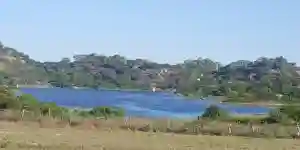The Zimbabwe National Water Authority (ZINWA) has unpacked the water agreement system ahead of the Winter farming season. We present ZINWA’s statement below.
One of the key changes that the water sector reforms brought was the replacement of water rights with water permits and water abstraction agreements. This new system allows ZINWA to efficiently and sustainably allocate available water amongst competing uses.
However, 20 years after the introduction of this system, some of the water users are still to fully grasp this concept and its importance to the management of the country’s water resources. This article, therefore, seeks to unpack the water agreement system.
What is a water abstraction agreement?
A water abstraction agreement is a contract that any person, entity or organisation, who needs a reservation for their use of raw water from ZINWA managed or State-owned dams enters into with ZINWA for the provision of his or her requirements.
Water abstraction agreements allow ZINWA to effectively plan the allocation of limited water resources available in its storage reservoirs to meet the competing needs of water users. The agreement forms the contract which spells out the obligations of ZINWA in supplying the raw water and that of the water user who pays for the services rendered.
Who needs to get a water abstraction agreement?
In terms of the Water Act (Chapter 20:24), anyone using raw water from a ZINWA managed or owned dam for purposes other than primary purposes should have a water abstraction agreement. This includes irrigating farmers, mines, local authorities, agricultural estates and industries. Statutory Instrument 206 of 2001 compels everyone using raw water from ZINWA managed dams to have an agreement when it says;
_“No surface water permit shall be required of a person who wishes to abstract surface water from a water storage works of share of a water storage works vested in the State or the National Water Authority for any purposes mentioned in paragraph (a), but such person must enter into an abstraction agreement with the National Water Authority in terms of subsection (6) of Section 39 of the Act”_
How does one get an agreement?
Any person wishing to use water from ZINWA managed or State-owned dams should approach the respective ZINWA catchment office from which they would want to abstract water and lodge an application for water stating the intended use of the water, their physical address, the amount of water required, point of abstraction and the crop intended for irrigation in the case of farmers. If ZINWA, after considering the application, is satisfied that there is sufficient water in their dams to meet the applicant’s requirements, the two parties will then enter into a water abstraction agreement.
How does the agreement system work?
Once a water abstraction agreement is entered into, ZINWA will reserve the full allocation as requested by the user in its dams and releases the water as per the water user’s water orders from time to time until the full allocation gets exhausted. The agreement holder becomes exclusively entitled to the allocation specified in the agreement which they are assured to get and the water cannot be released to any other user. The user is also expected to install, at his own cost, a meter or any other acceptable measuring device to measure his consumption and adherence to his allocation.
Farmers wishing to abstract water from ZINWA managed dams are encouraged to work closely with their extension officers or other people with appropriate expertise to help them fully appreciate the water requirements for different crops. This helps them in coming up with proper requirements when applying for water.
How is agreement water billed?
Agreement holders are expected to pay for their water allocation in monthly instalments during the subsistence of the agreement. However, in the case of farmers and other users who get their money at the end of a particular season or process, Stop Order arrangements can be made so that bills are settled during that period. Water users may also choose to pay the full sum of their allocation at the onset of the agreement especially where smaller volumes are concerned.
Why should water users pay for this water?
The money paid by water users is used for the operation and maintenance of dams and related water infrastructure that enable users to have access to the water resources given that the country has distinct wet and dry seasons and as such most of the dry season river flows are as a result of dam releases.
What happens if one uses water without an agreement?
A person who uses water without the necessary documentation commits an offence in terms of Section 118 of the Water Act and is liable to a fine, imprisonment or both. The same applies to anyone who uses more water than he is entitled to.
More: Pindula News

